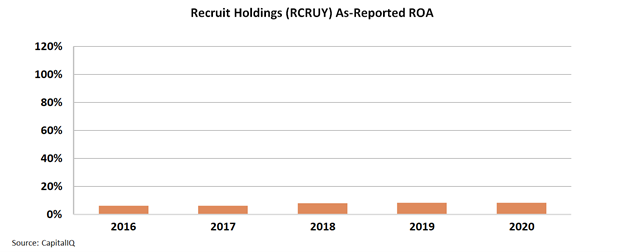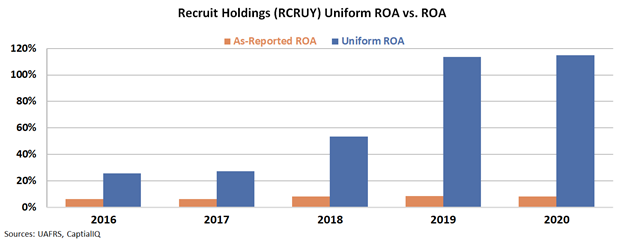 I had breakfast with one of my mentors a few weeks ago...
I had breakfast with one of my mentors a few weeks ago...
We met in New York to catch up. As one of the most successful and senior investment bankers during his time, he was incredibly influential in my decision to leave Wall Street.
He was more than encouraging and helped me to strike out and start my own independent research firm. As he frequently said to me, "Your talents are being wasted." So, I left my employment in the "bulge bracket" – the largest of the Wall Street firms.
My mentor often gave me great advice at just the right time. When discussing starting a business, he said something to the effect of "only hire nice people." (As an investment banker from New York, he may have used the more colorful "no a**holes"... but you get the point.)
Hiring nice people is important when building a corporate culture from scratch. In the past, I had overly focused on hiring people who were incredibly technically competent. I didn't think about whether I was bringing on people whose social skills were rougher around the edges.
And the reason for that? I didn't notice as much when I inadvertently hired people like myself. I had "sharp elbows." I was demanding of myself. I was more demanding of others than I'd prefer to admit. (Apologies to former employees and co-workers who were really nice people and had to deal with me back then!)
If technical competence is the singular criteria for hiring and promoting, then great teamwork falls by the wayside. Meanwhile, great teamwork is key to the success and sustainability of any organization.
 Corporate culture reflects the attitudes of the people within it, while also shaping those attitudes...
Corporate culture reflects the attitudes of the people within it, while also shaping those attitudes...
It can quickly become an out-of-control animal. It forms into an echo chamber of bad moods and poor decisions.
And as I internalized that, I grew to understand that the tone from the top is critical. If you want to hire nice people, you need to be a nice person. This was something I had to work on for myself.
At some point in my career on Wall Street, I realized I wasn't the easiest person to work with or for. I created far more stress for my employees and colleagues than I should have. Of course, I thought I was a nice person at the time... I suppose a lot of people think they are much nicer than others perceive them.
The same time that I left Wall Street, about 12 years ago, I had what I can only describe as a "come-to-Jesus" moment. I decided that whatever I did next, I wanted to be a nicer person.
I started meditation. I took up yoga. My daily reading turned into an entirely new library of content. The books I've been reading over the past decade you would never have found on my physical or digital shelves in my younger years.
I'd venture to guess that anyone reading this who knew me back then would be in disbelief. With the benefit of a decade of different thinking, I can look with self-reflection and understand why they'd be surprised and also why it was so important to do this – for my own and the business' success.
 I set out to build an intellectually challenging and highly disciplined work environment... while growing a culture of courtesy, politeness, and overall kindness.
I set out to build an intellectually challenging and highly disciplined work environment... while growing a culture of courtesy, politeness, and overall kindness.
I wholeheartedly expected that this would be a differentiating factor in our ability to hire and retain great people and would lead to a higher quality of work for our clients. I still believe that to this day.
I have to thank my mentor for his great words of advice.
Even as we work long hours to produce content for our clients, I trust that all of our employees feel that they're working alongside colleagues they like.
This requires recruiting and hiring in ways that contribute to a healthy corporate culture. And it's a two-way street. It's not just that we are looking for people who we'd want to work with... We know our recruits are doing the same. After all, they're also interviewing us.
 Regardless of industry, folks don't always have total confidence in how good a firm's culture is based on just a short interview...
Regardless of industry, folks don't always have total confidence in how good a firm's culture is based on just a short interview...
This is why, ahead of an interview and at many points during recruiting, job seekers often research companies on Glassdoor. The website gives its users lots of insights into the quality of work and culture at more than 1 million employers across the globe.
Glassdoor also helps people understand a company beyond what they can learn in an interview, since folks in HR and seasoned recruiters often choose their words and messages carefully.
With Glassdoor, users can see what kind of people companies hire and whether that employer might be a good fit. That seems like valuable information... so it must also be a great business model, right?
Tokyo-based HR company Recruit Holdings (RCRUY) owns Glassdoor. And when looking at Recruit's profitability based on the GAAP numbers, investors see data that suggest a problem at Glassdoor...
On an as-reported basis, Recruit Holdings' return on assets ("ROA") has been stagnant in recent years. This might lead investors to believe Glassdoor's popularity hasn't translated to Recruit Holdings' bottom line. Even after Recruit acquired the website in 2018, the company's profitability hasn't budged.
In fact, using as-reported results, Recruit can't even seem to generate returns above corporate averages of around 12%.
 In reality, this isn't an accurate picture of Recruit's performance...
In reality, this isn't an accurate picture of Recruit's performance...
When we clean up the financial statements using Uniform Accounting, we can see that the company's profitability is much greater than the as-reported numbers would have you believe.
Recruit offers highly valuable services for employees trying to find compatible cultures. Folks depend on the company's products... and are willing to pay a premium.
Recruit has in fact seen a positive trend in Uniform ROA levels. While returns were strong before the acquisition, they skyrocketed in 2018.
The year Recruit acquired Glassdoor, returns jumped to greater than 50%. In the past two years as Recruit has continued to integrate the purchase, profitability soared above 110%. Take a look...
People clearly want to have a better understanding of a potential employer before signing on. And companies are also willing to pay a premium to see if there are problems with their perception. More businesses are beginning to understand that their employees are their lifeblood. Company culture and being nice matters... and it translates to the bottom line.
Regards,
Joel Litman
March 26, 2021



 I had breakfast with one of my mentors a few weeks ago...
I had breakfast with one of my mentors a few weeks ago...



